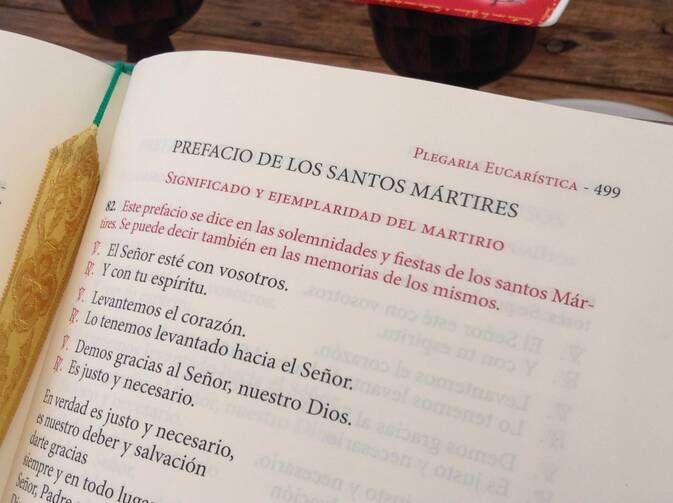The day is almost here: the beatification of Oscar Romero. Thirty-five years after his martyrdom, hordes of pilgrims will descend on El Salvador on May 23 to honor Romero’s life and witness. The archbishop of San Salvador was a “sign of contradiction” in every sense of the phrase, from the theological to the political to the commonsensical, and his devotees include many Americans who revere him as a modern-day prophet. “Part of Romero’s power was his understanding that the church, by her nature, must be revolutionary in the truest sense,” wrote Archbishop Charles J. Chaput of Philadelphia recently. “She seeks, and at her best actually lives, a revolution of Christian love.”
Romero had as many enemies in death as in life, but we will not be hearing much from them. Everyone these days—even those who hindered his cause for sainthood on the grounds he was a Marxist, even those who promote an economic creed against which he prophesied with hellfire and brimstone, even the erstwhile allies of those believed to have murdered him—has nothing but love for Oscar Romero.
One cannot help but cast a gimlet eye on some of it, and I am reminded of a conversation I had with a wise Jesuit retreat director 13 years ago. I had asked him about the seemingly endless list of those murdered in El Salvador, both the famous and the anonymous. How would we remember those killed by the Catholic soldiers of a Catholic government in a country named for our Savior?
“The one the church will pick to recognize as a saint is Romero,” he said. “And that will be fine; he will stand for all the martyrs. But,” he cautioned with a smile, “once we make them saints, they are no longer dangerous to us.” But what about all those who hated Romero and his message, I asked, including some in the church? Weren’t they complicit in his death and all that followed?
“Not just the church,” he rebuked me, “the Western world. All of our hands are dirty. Yours and mine too. Who paid for all those guns?”
It was Romero himself who asked President Jimmy Carter in 1980 to halt a military aid shipment to El Salvador. “Instead of favoring greater justice and peace in El Salvador,” Romero wrote, “your government’s contribution will undoubtedly sharpen the injustice and the repression inflicted on the organized people, whose struggle has often been for respect of their most basic human rights.” Over the next 12 years, the United States gave over $6 billion to prop up the murderous Salvadoran regime.
President Obama, who lit a candle at Romero’s tomb during a visit to El Salvador in 2011, made the following statement recently regarding Central America: “The days in which our agenda in this hemisphere presumed that the United States could meddle with impunity, those days are past.” A reporter friend offered a single comment: “LOL.” Like most foreign policy reporters, he recognized Obama’s claim as a laughably preposterous lie, Nixonian in its stout assertion of an absurdity. After 150 years of meddling, the United States is suddenly out of the empire game in Latin America? This greasy assurance sounds a lot like Vladimir Putin’s claim that Russia does not meddle in the affairs of Ukraine. Meanwhile, the Western Hemisphere Institute for Security Cooperation (formerly the School of the Americas) remains open in Fort Benning, Ga.
That retreat director was right about more than just American complicity in El Salvador’s tortured history. He also presciently identified the peril we all face in honoring Romero the man: we run the risk of ignoring or sanitizing Romero’s message.
Yes, Oscar Romero sought “a revolution of Christian love.” But part and parcel of that love was a rejection of American-style economics. Romero wrote that “In concrete terms, capitalism is in fact what is most unjust and un-Christian about our own society.” He also rejected any ecclesiology that exempted or banned the church from criticizing political and economic injustice.
Romero is considered a martyr because he was killed “in hatred of the faith,” but (to quote his Vatican postulator) it was “a hatred for a faith that, imbued with charity, would not be silent in the face of the injustices that relentlessly and cruelly slaughtered the poor and their defenders.” He also had a chilling warning for the first world, one later adopted by St. John Paul II: On Judgment Day, the people of the third world will stand in judgment upon those of the first.








